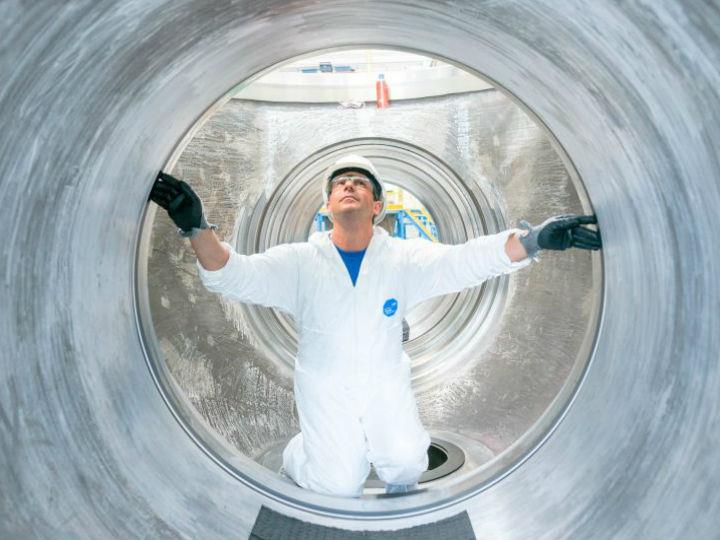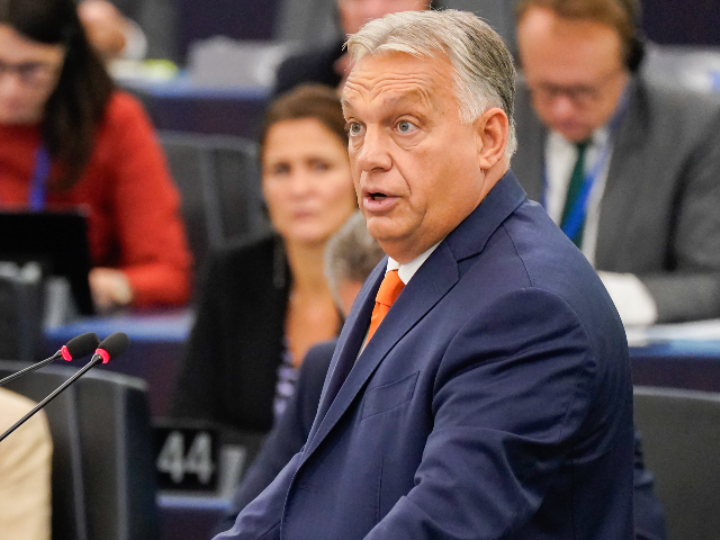by Dave Keating
The potential of hydrogen energy to transform Europe’s energy landscape has become one of the most exciting areas of EU energy policy over the past year.
Last week, Frans Timmermans added fuel to that fire, speaking at a forum of the Fuel Cell and Hydrogen Joint Undertaking in Brussels on Thursday (21 November).
“Europe is leading in Clean hydrogen, slightly,” he said. “Why not expand the lead in one of the things that could be most important in the energy transition?”
“Hydrogen could be applied using a lot of infrastructure we already have,” Timmermans pointed out referring to the existing natural gas infrastructure. “Whereas the problem we will have with solar and wind is that…for this to work we need networks, we need the grids. And there we have a shortcoming.”
But bureaucratic hurdles are currently preventing hydrogen from taking off, the Dutchman said. “My first promise to you is I will make sure that we speed up all the processes to get things going,” he said. “The most important thing, however, is that you help us find ways to also show relatively quick successes. Nothing works better than to show people it works”.
Hydrogen, which can be produced from electricity or gas, is expected to play a central role in the European Commission’s upcoming gas decarbonisation package, expected in 2020 or 2021.
The particular appeal is that Europe is leading in developing the technology which could be used in existing gas infrastructure. It can go hand-in-hand with increasing the share of electricity in Europe’s energy system, by allowing storage of excess renewable electricity production.
At a summit in Zagreb last week, the centre-right European People’s Party (EPP) adopted a climate resolution with clear support for blue hydrogen – made via the steam reforming of natural gas – combined with carbon capture and storage to store the CO2 produced as a by-product.
Much of the attention has focused on so-called “green hydrogen” produced from the electrolysis of wind and solar power. But the quantities of green hydrogen remain small at the moment, with most production today coming from natural gas steam methane reforming, or “grey hydrogen”.
However, there is also concern that policymakers may be getting carried away with all the hydrogen enthusiasm.
“Not the silver bullet”
“Hydrogen will play a huge role, but hydrogen on its own is not the silver bullet that will solve the problem,” Timmermans cautioned.
“If we are savvy with our technology, a combination of fossil and hydrogen could be used in the grid,” the Dutchman said, referring to blending of hydrogen with fossil gas. “Because as I said there is not one silver bullet. Fossil fuels will also be part of the mix, we have to be realistic about that”.
“This time, it’s different”
The Commission is expected to adopt its European Green Deal on 11 December, a communication that will set the direction for the EU to meet its Paris Agreement goals and its target, possibly to be adopted by member states at a Brussels summit the next day, to get to net-zero emissions by 2050.
Given that it will preview many of the measures from the gas package due to be proposed early next year, signals on a commitment to hydrogen will be crucial for investment.
“Hydrogen has the potential to decarbonise in the green new deal, and it can help diversification of sources,” said Mechthild Worsdorfer, director of sustainability technology and outlooks at the International Energy Agency (IEA).
And while there has been much hype around hydrogen at the beginning of the century, the current momentum seems to be here to stay, she told participants at the meeting.
“We think this time is different. We have a much broader discussion on hydrogen but there are main challenges we need to overcome. But it’s still costly, we need infrastructure, and there are regulatory issues.”
Hydrogen: “An enabler for sector integration”
Ditte Juul Jorgensen, the new director-general of the Commission’s energy department, told the forum that policymakers were eyeing sector integration between hydrogen and electricity.
“Electricity will become the dominant energy carrier, its share should grow steeply from 22% in 2015 to 53% in 2050 under an electrification scenario,” she said. “We are looking at power to gas, power to liquids, power to heat for batteries. That will be required when we look at hydrogen as an enabler of sector integration.”
“We have seen increased attention by industry and policymakers to hydrogen,” she said. The Linz Declaration, launched under the Austrian presidency last year, kicked it off, and the Bucharest declaration has accelerated efforts. But she said more investment is badly needed.
“We need infrastructure for transport, production and applications,” agreed Mauro Petriccione, director-general of the Commission’s climate department. “For instance, charging infrastructure for automotive applications. In all these things we are a bit late.”
According to Petriccione, regulation is needed to determine what qualifies as clean hydrogen.
“We need to have a market mechanism that brings supply and demand together because we don’t want to be trapped in a subsidy system that will collapse the day we run out of money. We need to find the equivalent to what we’ve done in the past for solar and wind.”
*first published in: www.euractiv.com




 By: N. Peter Kramer
By: N. Peter Kramer
